Buying Guide for the Best Heavy Duty Vacuum Sealer
Choosing the right heavy-duty vacuum sealer can make a significant difference in preserving food, saving money, and reducing waste. A heavy-duty vacuum sealer is designed for frequent use and can handle larger volumes of sealing compared to standard models. When selecting a vacuum sealer, it's important to consider several key specifications to ensure it meets your needs and performs efficiently.Sealing PowerSealing power refers to the strength and effectiveness of the vacuum sealer in removing air and sealing the bag. This is important because a stronger seal ensures better preservation of food by preventing air and moisture from entering. Sealing power is often measured in inches of mercury (inHg) or kilopascals (kPa). For heavy-duty use, look for a vacuum sealer with higher sealing power, typically above 20 inHg or 50 kPa. If you plan to seal a variety of items, including liquids and delicate foods, a higher sealing power will provide more versatility and reliability.
Seal Bar LengthThe seal bar length determines the maximum width of the bags you can use with the vacuum sealer. This is important because it affects the size of the items you can seal. Seal bar lengths typically range from 11 to 15 inches. For heavy-duty use, a longer seal bar (around 15 inches) is preferable as it allows you to seal larger bags and bulkier items. If you frequently seal large cuts of meat, whole fish, or bulk quantities of food, a longer seal bar will be more convenient and efficient.
Cycle TimeCycle time refers to the amount of time it takes for the vacuum sealer to complete one sealing process. This is important for heavy-duty use because a shorter cycle time means you can seal more items in less time. Cycle times can vary from a few seconds to over a minute. For heavy-duty applications, look for a vacuum sealer with a cycle time of 10-20 seconds. If you plan to use the vacuum sealer frequently or for large batches, a shorter cycle time will help you work more efficiently and reduce downtime.
Durability and Build QualityDurability and build quality refer to the materials and construction of the vacuum sealer. This is important because a well-built machine will last longer and withstand frequent use. Heavy-duty vacuum sealers are often made with stainless steel or high-quality plastic components. Look for models with robust construction, reinforced seals, and reliable motors. If you plan to use the vacuum sealer in a commercial setting or for heavy home use, investing in a durable and well-built machine will ensure it can handle the demands and provide long-term performance.
Ease of Use and MaintenanceEase of use and maintenance refer to how user-friendly the vacuum sealer is and how easy it is to clean and maintain. This is important because a machine that is easy to operate and maintain will save you time and effort. Look for features such as intuitive controls, easy-to-read displays, and removable drip trays. If you plan to use the vacuum sealer frequently, choosing a model that is easy to clean and maintain will help you keep it in good working condition and ensure consistent performance.
Additional FeaturesAdditional features refer to extra functionalities that can enhance the performance and convenience of the vacuum sealer. This is important because these features can provide added value and versatility. Common additional features include adjustable vacuum settings, pulse mode for delicate items, built-in bag cutters, and roll storage. If you have specific needs, such as sealing delicate foods or liquids, look for a vacuum sealer with features that cater to those requirements. Additional features can make the vacuum sealing process more efficient and tailored to your needs.
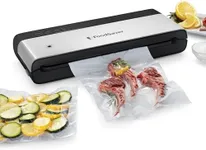
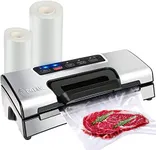
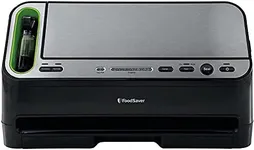

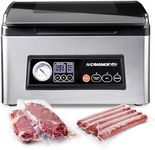
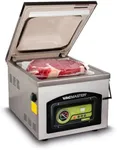
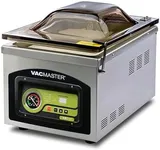
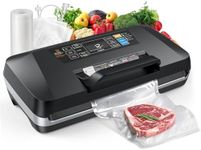


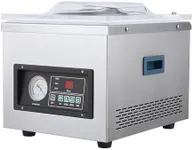

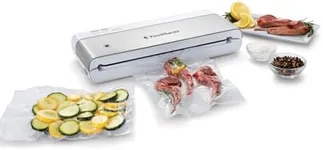
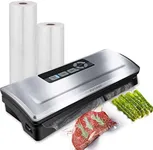

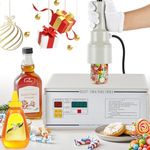
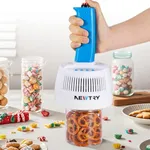
![Impresa [3 Pack] Teflon Strips for FoodSaver Vacuum Sealers - Fits FoodSaver, Rival Seal-A-Meal, Weston, Cabella's and Nesco Models](https://images-proxy.bestreviews.guide/C46_ldSSL1l3xTp8JRKiC-TzckE=/0x150/https://m.media-amazon.com/images/I/51jYQdNu5KL._AC_CX679_.jpg)





